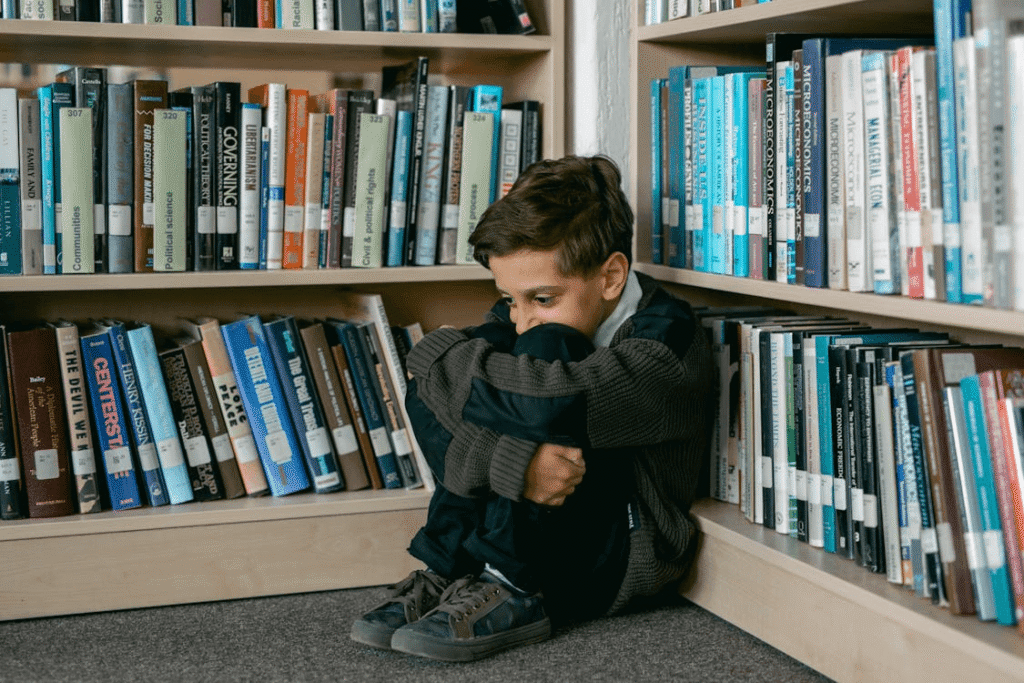Divorce is one of the most serious events in the life of a person which may have an impact on each of the members of a family very hard. It is quite different when it comes to children, and, depending on time, age, and emotional maturity, the impact of divorce on children can range significantly. Some children will adjust as they go along whereas others might experience permanent emotional and psychological effects.
This article will examine the issue of the impact of divorce on children’s mental health in terms of age of a child, starting at infancy, mid-childhood and teenage years, and how to help the child go through this difficult time in their life.
The Impact of Divorce on Children: An Overview
The impact of divorce on children cannot be ignored. The findings of research studies are quite consistent and indicate the fact that children whose parents have divorced have higher probabilities of facing emotional distress, schooling hardships, behavioral problems and social relations issues. Nonetheless, such effects are not even. Every child is different in his/her own way and child age is an important factor that defines how a child will react to parent separation.
Key Factors That Influence the Impact:
- Age and level of development
- The magnitude of parental conflicts
- Parent-child relationships quality
- Socioeconomic changes
- Availability of support systems
By understanding how divorce affects children depending on their age, parents can provide specific guidance, which responds to emotional and growth needs of the children. It is also important to note that divorced parents affect the child’s well being in several ways such as emotional security, stabilization of behavior and future relations.
Infants and Toddlers (0-3 Years): Early Emotional Imprints
Although infants may not understand the true process of divorce, they are capable of reacting quite seriously towards alterations in their environment and the mood of caregivers. Divorce’s impact on children in this age group can be characterized by fussiness, sleeping difficulties, and separation hysterics.
Mental health Considerations:
- Babies can detect parental pressures, anxiety and lack of agreement.
- Upheaval of routine may create a sense of insecurity.
- Toddlers can revert to their previous behavior, which includes bedwetting or being clingy.
Support Strategies:
- Keep consistent patterns of activity and care.
- Parents should not expose their infants and toddlers to parental conflict.
- Be reassuring by touch, tone, and attention.
Preschoolers (3-5 Years): Magical Thinking and Confusion
Preschool children are especially prone to the impact of a divorce on children given the fact that they are likely to display magical thinking. They might think that they must have been the cause of the separation and hence accuse them of feeling guilty, perplexed and upset.
Mental Health Considerations:
- Children might have fears of being rejected.
- They are more inclined to temper tantrums, aggression or withdrawal.
- There can be nightmares or anxiety.
Support Strategies:
- Define the situation in simple age appropriate language.
- Children should be assured many times that nothing can be wrong with them which caused the divorce.
- Play/storytell to encourage them to express themselves in a non-threatening way.
Early Elementary Age (6-8 Years): Emerging Emotional Awareness
At this age, kids are developing a more conscious idea of divorce, but they still have a weak emotional control. Emotional effects of divorce on children in this age group usually manifests itself as sadness, anger or conflict of loyalties between the parents.
Mental Health Factors:
- Children can be concerned about the future and the stability of their families.
- It is normal to have anxiety about new living conditions or education.
- They can become behaviorally acting up at school or at home.
Support Strategies:
- Be genuine, regular and honest in information about changes to expect.
- Communicate freely, make children talk about their feelings.
- Do not place kids in the position of conflict between parents.
Tweens (9-12 Years): Increased Awareness and Emotional Turmoil
Tweens possess a more mature knowledge of relationships, and they can experience the emotional after-effect deeply. The impact of divorce on children between the ages of 9-12 may have the form of allegiance on one parent, anger, and the inward feelings of grief or rage.
Mental Health Consideration:
- Kids can be caught up between the two parents.
- The distraction can result in decreased academic performance because of emotions.
- Others might feel depressed or have poor self-respect.
Support Strategies:
- Inspire good relations with the two parents.
- Assist children to formulate healthy coping mechanisms.
- In case of emotional problems, take into account the possibility of counseling or the use of support groups.
Teenagers (13-18 Years): Identity and Relationship Challenges
Teenagers are already having to explore the confusing process of identity development. Consequences of divorce for children at this age can exacerbate anger, rebelliousness and distrust of relationships.
Mental Health considerations:
- Teens can retreat into self or go rebellious.
- They can doubt the concepts of love, commitment, and trust.
- It might lead to depression, anxiety or self-esteem problems.
Support Strategies:
- Be emotionally available whilst respecting their need for independence.
- Do not condemn their emotions.
- Give professional counseling when necessary.
Mental Health Effect on Kids
Although not all children are affected by divorce so drastically and permanently, the mental health effects of divorce on children may be carried into adulthood in certain situations. Some of the long term effects are:
- Problems in a relationship and fear of commitment
- The problems with trust or fear of abandonment
- Constant anxiety or depression
- Academic or professional difficulty
Nevertheless, numerous children whose parents divorced turn out to be quite tough and emotionally sound adults with the proper nurture.
Managing the Effects of Divorce on Kids
Though divorce may sometimes be a hard thing to deal with, the parents have a lot of power in ensuring that the effects of divorce are reduced. Families can protect the emotional welfare of children by paying attention to the consequences of divorce on children and making positive efforts in that direction.
Open Communication should be Prioritized
Tell kids about the divorce in age appropriate statements. Do not keep things under wraps or put a rosy color on the situation.
2. Shield Children from Conflict
Persistent interparental conflict has been shown to be among the greatest predictors of how badly a child might perform. Exclude children in the arguments and legal matters.
3. Foster Strong Parent-Child Bonds
4. Maintain Stability and Routine
Children live on routines. To a considerable extent, maintain regular daily schedules-meals, school routine, and going to bed.
5. Seek Professional Support
In case of the presence of signs of anxiety, depression or behavioral problems, counseling sessions will allow developing a comfortable environment in which children will be able to work out their feelings.
How Co-Parenting Shapes the Impact of Separation?
How Co-Parenting Shapes the Impact of Separation?
Effective co-parenting plays a key role in minimizing the detrimental effects of divorce among children. A joint strategy with both parents in active engagement of the child generates improved mental health results.
Co-Parenting Tips:
- Define clear programs and expectations.
- Speak with one voice in making critical decisions.
- Be adaptive and prioritise the best interest of the child.
Red Flags: When to Seek Help?
Some of the emotional responses to divorce are normal, however, parents must be observant of warning signs that show that there may be more significant mental health issues connected to the impact of divorce on children:
- Constant depression, weeping or isolation
- Aggression or opposition behavior
- Reduced performance at school
- Restlessness or insomnia/ nightmares
- Somatic symptoms such as a headache or stomach pains
In case such symptoms continue, it is necessary to address a child psychologist or a therapist.
Conclusion: Supporting Children Through Separation
The impact of divorce on children is certain, yet with caution, care, and proper planning, parents can assist their children to come out of this change in their lives in a healthy way. But knowing how children at various developmental ages are affected by divorce, parents will be able to give specific support, which each child requires to develop resiliency and emotional stability.
It is always important to remember that divorce does not need to become the future of a child. Children can come out of the experience even stronger and more flexible with love, stability, and open communication.
When you find yourself on the road of divorce and seek an expert opinion, https://smartdivorcenetwork.com/ offers the resources, support and the practical guidance you need toward solving your divorce and supporting your family in the process. You can also follow us on Facebook, Instagram or Twitter.
Note: All images are sourced from Pexels.com.

Thank you for your interest in my posts. If you want to share your input about them, I will be glad to read it. I add new content every week, I hope you come back regularly to read it.
You can also meet me on Facebook.








